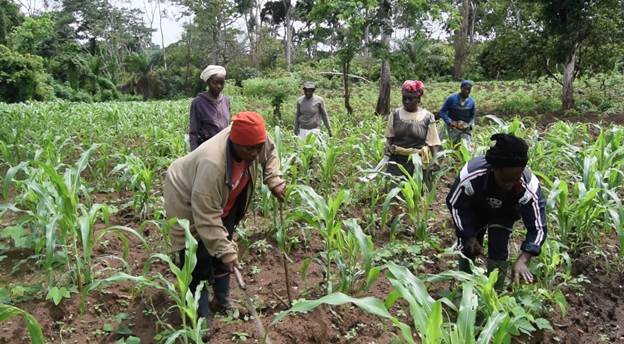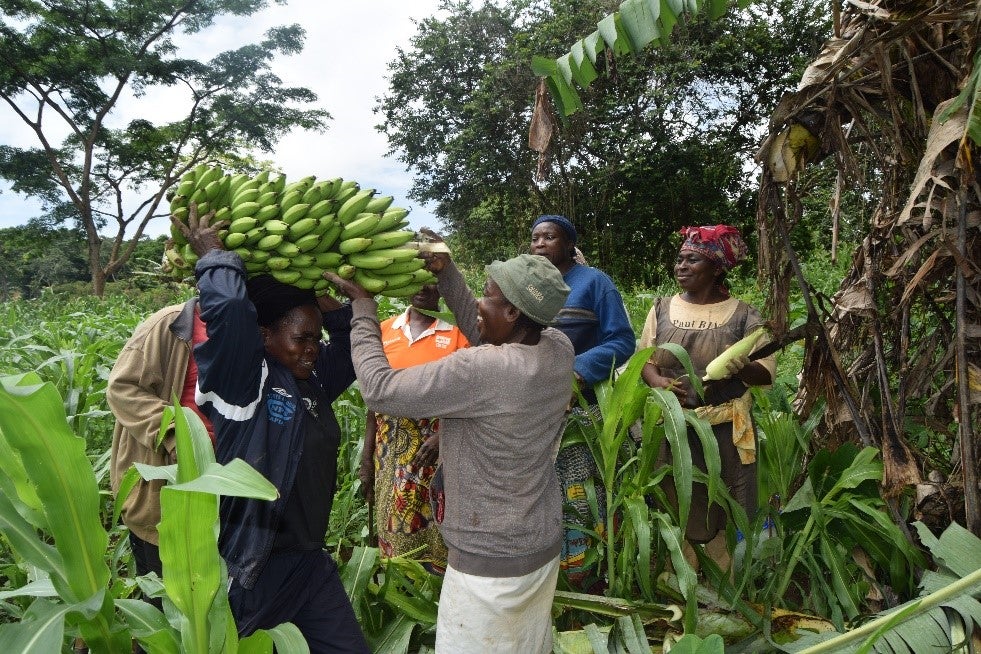Empowering rural women on effective management of cooperatives and development organizations
Date:
UN Women has trained over 60 members of the network of Women’s Association in Ayos (REFA’AYO) on the structuring and functioning of grassroots development organizations and the financial management along the value chain.

Rural Women association working on their maize farm. Photo: UN Women
The capacity building workshop which took place from 28th to 30th of August 2018 sought to raise awareness to participants on the merits and functions of associations, capacity building for participants on management of cooperatives, management of financial resources along the value chain and to initiate the process of obtaining land titles.
Speaking at the workshop, UN Women national program specialist, Joseph Ngoro criticized the inability to acquire human capital and productive resources necessary for the development which exposes women to all kinds of violence. “Though women represent a majority of the agricultural labor force, they paradoxically constitute the poorest amongst the rural population (about 52%). In support of the Government's efforts to combat rural poverty and promote sustainable development, UN Women has developed and is implementing a flagship program “Economic empowerment of rural women farmers in Cameroon through climate-resilient agriculture” which focuses on capacity building and facilitating rural women’s access to productive resources – land, farm inputs and micro-credit,” he said.
While opening the training, the Sub-Divisional Officer of Ayos applauded the initiative by UN Women, “Women in my administrative unit will henceforth have the capacity to guarantee effective leadership of grassroot organizations whose quality of services embraces the orientations of our country in the empowerment of women.”

Rural Women joining hands to increase agricultural production. Photo: UN Women
The three days training was organized within the framework of UN Women’s flagship Programme “Economic Empowerment of rural women farmers in Cameroon through climate resilient agriculture” with an integrated approach towards the effective empowerment of women farmers. In Cameroon, rural women account for about 80% of local food production but their contribution to the agricultural economy remains weak due to disparities between men and women to access productive resources needed for sustainable agriculture and are exacerbated by the effects of climate change.
This training targeted members of RAFA'AYO, a network with a membership of over 150 associations divided into six sectors and 23 antennas focusing on capacity building of its members on sustainable agriculture, fish and livestock farming. UN Women Cameroon organizes similar capacity building seminars and facilitate acquisition of land titles for women’s associations and the creation of rural women’s cooperatives within the program intervention area.